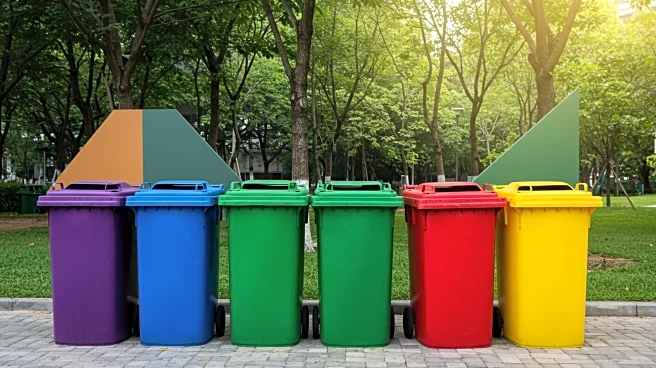What is the story about?
What's Happening?
Negotiations for a global treaty to reduce plastic pollution have stalled in Geneva, with no agreement reached on production caps. Countries like Saudi Arabia and the United States opposed caps, citing economic concerns. The focus now shifts back to recycling, reuse, and product design improvements. Despite efforts, only 6% of plastics are recycled due to the complexity of different plastic types. The plastics industry is exploring innovations to increase recyclability, but challenges remain in infrastructure and consumer participation.
Why It's Important?
The failure to reach a global treaty highlights the ongoing struggle to address plastic pollution, which poses significant environmental and health risks. Plastics contribute to greenhouse gas emissions, exacerbating climate change. The reliance on recycling and reuse underscores the need for systemic changes in production and consumption patterns. The opposition from major oil-producing nations reflects the economic stakes involved, impacting global environmental policies and sustainability efforts.
Beyond the Headlines
The lack of progress in treaty talks may lead to increased pressure on industries and governments to innovate and implement effective recycling solutions. Legal actions, such as California's lawsuit against Exxon Mobil, highlight the growing scrutiny of corporate practices related to plastic production. The emphasis on reducing plastic production rather than recycling could drive long-term shifts in consumer behavior and product design.















